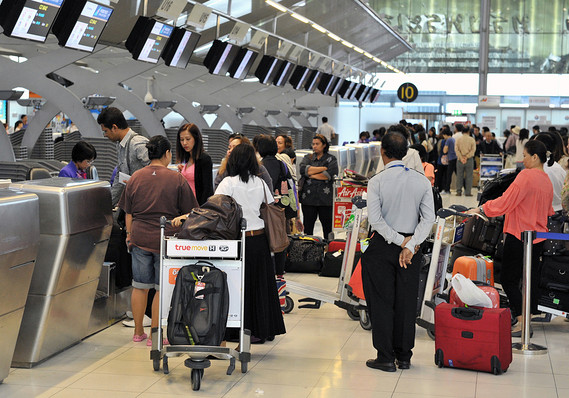
Premium commercial pilot license guides in 2021
What are the best reasons to be a commercial pilot? No one likes taking their work home with them, and aside from studying for annual tests, pilots leave their work in the plane. There’s nothing to take home once you finish your day and close that cockpit door. Which leaves for more time to explore the latest city of the week, spend time with the ones you love, or pick up a new hobby. Flexible working has always been a major advantage of being a pilot. it’s not your typical 9-5 job Monday to Friday. Most pilots work an average of 2-3 weeks a month, which means you have the rest of the month to enjoy yourself. Most pilots take advantage of this time to connect with their family, take vacations, or just relax. Pilots can spend their days however they wish to and with a free pass around the world, their options are nearly unlimited.
Top methods to obtain a commercial pilot license by thePilot.in expert help? We need to be 100% sure that you are medically fit to fly before you invest your money in a pilot course as it’s a mandatory requirement. The medicals are a 2 step process. Class 2 medicals : It can be carried out throughout India with doctors appointed by DGCA. Post completion you will be handed a CA – 35 assessment form as fitness certification and your reports will be sent to the office of DGCA for the issue of medical assessment later on you receive a final medical assessment from DGCA. Class 1 medicals : Class 1 initial medical assessment can be carried out in only 5 cities (Mumbai, Banglore, Delhi, Chennai and Johrat) . Class 1 medical assessment date can only be requested post receiving class 2 assessment from DGCA.
Despite what movies and television would have you believe, a co-pilot is not some kind of subordinate apprentice who looks to the captain for all the answers. “Co-pilots are fully qualified pilots,” Auxier says. “They could just as easily be the pilot. That is solely a factor of seniority.” Smith bristles when media outlets refer to a singular pilot in stories: “We normally take turns. If one of us flies to London, the other flies back to New York. There are two pilots.” Another pilot pet peeve: the idea they climb into a cabin and watch a computer do their job for them. “A plane no more flies itself than a high-tech operating room performs an organ transplant by itself,” Smith says. “There are routing changes, communications issues, navigational issues, monitoring fuel burn. There is always some task going on. We might not have our hands on the wheel as often as we did years ago, but we’re still flying it.”
Even if you aren’t a veteran and want to become a pilot, finding a flight school that caters to veterans may be to your advantage, since you’ll be with more people your age and may feel as though you fit right in. As long as you’re healthy and fit to fly, age truly doesn’t matter. In fact, the oldest known airplane pilot, Ernie Smith, was 101 years old when he flew his last plane. Whatever your reason for wanting to get your license, whether it be because you want to start working as a pilot or just because you want to rent a plane and fly around, it’s never too late to start. Being older than many of the other students may actually give you an advantage. You have more life experience than the younger students and you can draw on that experience to help you in your training. A big part of flying helicopters or airplanes is being able to make quick decisions and follow correct procedures. Following procedures and handling situations correctly will keep you and your passengers safe. Following directions and making quick decisions may be easier for you because of previous work and life experience you’ve had, especially if you’re a veteran.
What’s A Commercial Pilot? A commercial pilot is a pilot with commercial pilot license (CPL) and commercial pilot training that is paid to transport people and cargo from various local and international locations around the world, unscheduled. They are also paid to carry out other operations such as search and rescue in emergencies and aerial surveying. Airline pilots differ from commercial pilots because they fly for airlines on a fixed schedule unlike commercial pilots. See extra info on thepilot.in.
Recent Posts
Tags
Categories
Archives
- March 2024
- February 2024
- January 2024
- December 2023
- November 2023
- October 2023
- September 2023
- August 2023
- July 2023
- May 2023
- April 2023
- March 2023
- February 2023
- January 2023
- December 2022
- November 2022
- October 2022
- September 2022
- August 2022
- July 2022
- June 2022
- May 2022
- April 2022
- March 2022
- January 2022
- December 2021
- October 2021
- September 2021
- August 2021
- June 2021
- May 2021
- April 2021
- March 2021
- February 2021
- January 2021
- December 2020
- October 2020
- September 2020
- August 2020
- July 2020
- June 2020
- May 2020
- April 2020
- March 2020
- February 2020
- January 2020
- December 2019
- November 2019
- October 2019
- September 2019
- August 2019
- July 2019
- June 2019
- May 2019
- April 2019
- March 2019
- February 2019
- January 2019
- December 2018
- November 2018
- October 2018
- September 2018
- August 2018
- July 2018
- June 2018
- May 2018
- April 2018
- March 2018